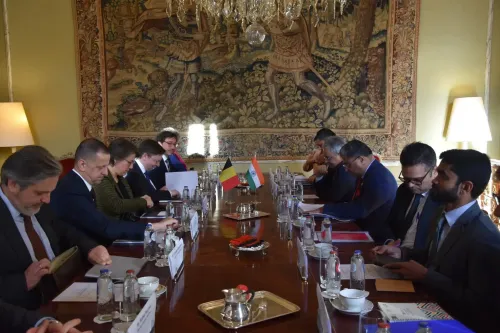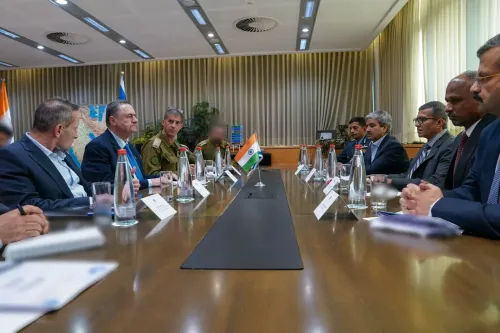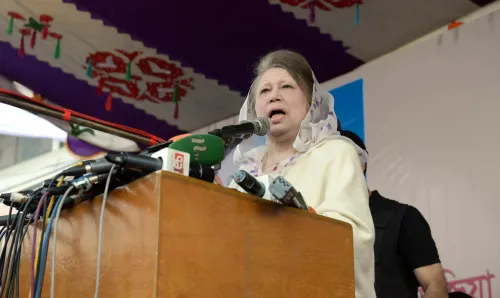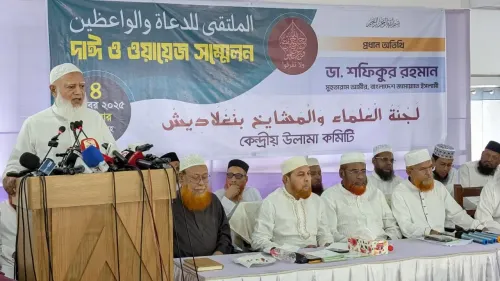Is Pakistan's 'kill and dump' policy a genocidal mechanism?
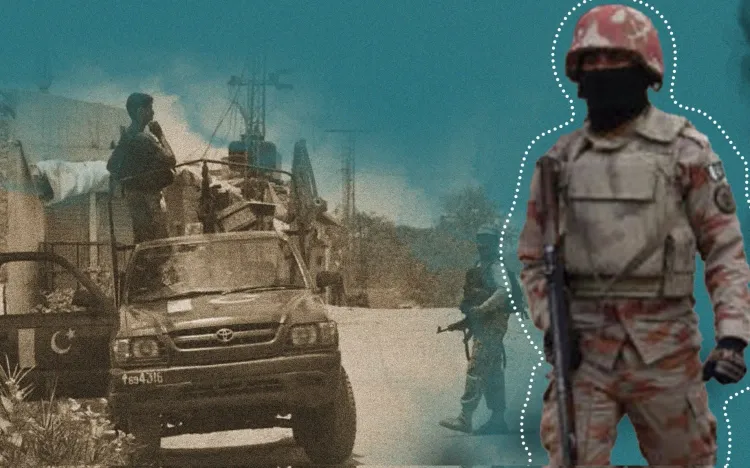
Synopsis
Key Takeaways
- Recent abductions of Baloch activists highlight ongoing state oppression.
- The BYC claims the "kill and dump" policy is a genocidal mechanism.
- International human rights law is being violated.
- The BYC vows to document every victim.
- Calls for global awareness and action against these atrocities.
Quetta, May 15 (NationPress) The Baloch Yakjehti Committee (BYC) has condemned the recent abductions and murders of Tariq Baloch and Sameer Sabzal, labeling them as stark evidence of Islamabad's ongoing strategy of extermination. They assert that Pakistan's campaign against the Baloch community is both calculated and brutal, exemplified by its "kill and dump" policy.
Tariq, the son of renowned car racer Ibraheem Kalamati from Gwadar's Jiwani, was forcibly taken from a guesthouse on May 11 by alleged Law Enforcement Agencies (LEAs). Just a day later, his lifeless body was discovered in Palliri, Balochistan.
Earlier this month, 25-year-old Sameer Ahmed Sabzal was abducted by personnel linked to Pakistan's Military Intelligence (MI) in Panjgur. His tortured and bullet-riddled remains, showing clear signs of abuse, were recovered on May 9.
In a statement released on Thursday, the BYC said, "The mask is off. The state no longer hides. The rebirth of the original 'kill and dump' policy is underway, more brazen, more unapologetic. Victims like Tariq Baloch, abducted twice and found dumped in Gwadar, and Sameer Sabzal from Panjgur serve as fresh proof of this state policy of annihilation."
The BYC highlighted that this modern iteration of the "kill and dump" policy began in 2009 with the abduction and extrajudicial killing of three Baloch leaders: Waja Ghulam Mohammad, Sher Mohammad, and Lala Munir. Since then, the list of victims has swelled into the hundreds, encompassing students, educators, healthcare professionals, and political activists.
They noted that between 2020 and 2021, Pakistan introduced a new legal facade: the 'encounter' narrative, orchestrated by the Counter Terrorism Department (CTD).
The BYC stated, "Through CTD fake encounters, the state crafted an illusion of law. Victims were rebranded as terrorists. The extrajudicial became legal. The genocidal became administrative. Despite the changes in language, the bloodshed continued. This manipulation allowed the Pakistani state to whitewash its war crimes before the international community, evading scrutiny under the guise of 'counterterrorism'."
They urged every human rights organization, journalist, and international institution to acknowledge the ongoing killings of the Baloch people, declaring, "The 'kill and dump' policy is not merely a fear tactic. It is a genocidal mechanism. We, the Baloch Yakjehti Committee, commit to documenting every name, every body, and every grave. We pledge to resist with our voices, our mothers' tears, and our people's truth."
The Baloch Yakjehti Committee is dedicated to advocating for the rights of the minority Baloch community in Pakistan.
Allegations have emerged that Baloch human rights defenders from the BYC have been arrested by Pakistan's Counter Terrorism Department or have gone missing.
In March, several UN experts urged Pakistan to promptly release detained Baloch human rights defenders and to halt its crackdown on peaceful demonstrators, voicing concerns over a growing series of actions taken by the Pakistan police against the BYC.

